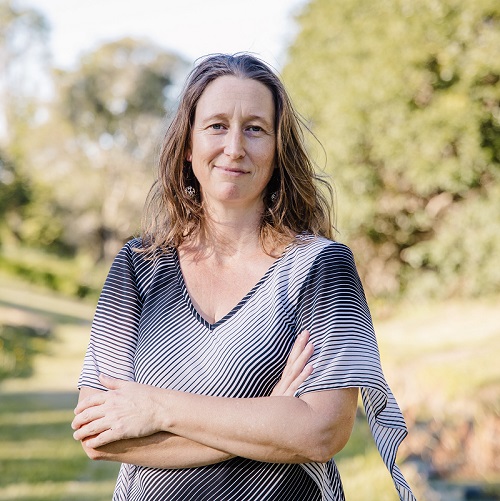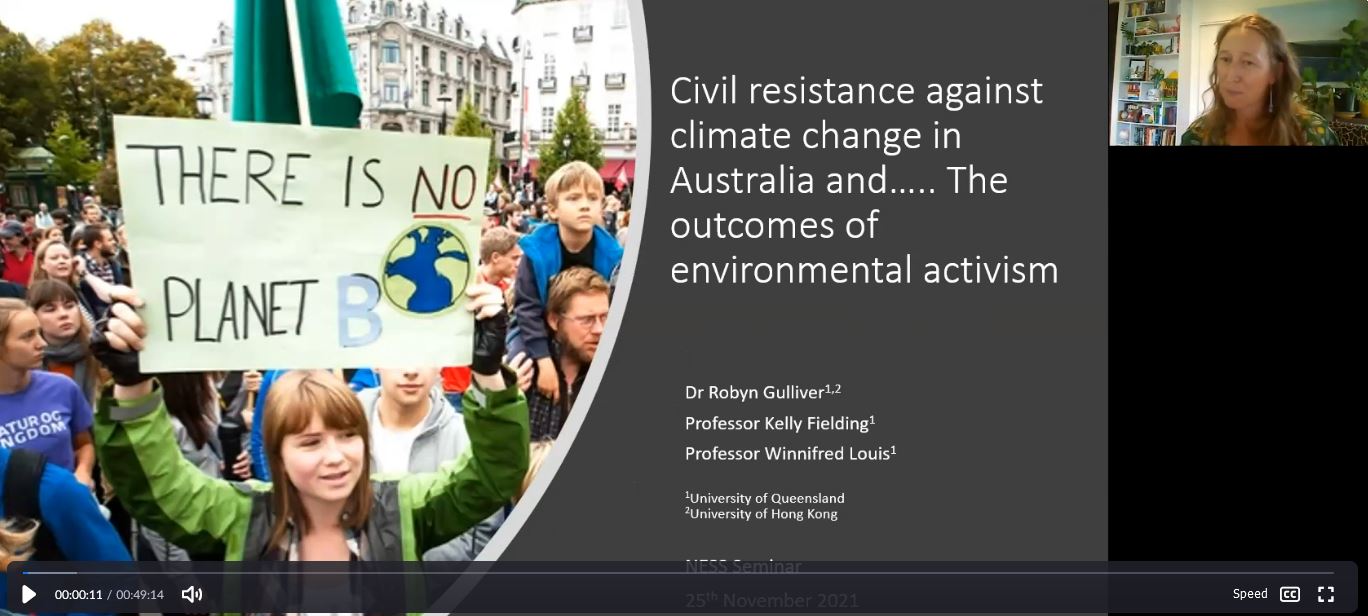
NESS SEMINAR
Dr Robyn Gulliver
@regulliver
Date: Thursday 25th November
Time: 1 – 2pm
Location: Online via zoom
Civil resistance against climate change burst into the Australian public arena in 2019 with the rise of Extinction Rebellion and School Strike for Climate. However, this resistance has a much longer pedigree with long running campaigns against coalmines, blockades against coal ports and corporations, and multiple divestment campaigns against banks, universities and businesses. Despite this activity, until recently we have had comparatively little empirical data capturing the full range and features of collective action used in the climate movement, nor evidence of the effectiveness of such tactics to achieve urgent and meaningful action on climate change.
In this seminar Robyn presents learnings from extensive empirical research on the Australian environmental movement, including an overview of the characteristics and outcomes of climate change collective action (and civil resistance more specifically) and what mechanisms are deployed by authorities to suppress this activism. She will conclude by sharing findings from a systematic review on the outcomes of environmental collective action more broadly.
You can watch the seminar via zoom by clicking on the link here.
Dr Robyn Gulliver is a Research Fellow at the University of Hong Kong, and a multi-award winning environmentalist, writer and scholar who has served as an organiser and leader of numerous local and national environmental organisations. Her research investigates the predictors and consequences of pro-democracy and environmental collective action. She commences a postdoctoral fellowship position in the School of Communication and Arts in January 2022.




